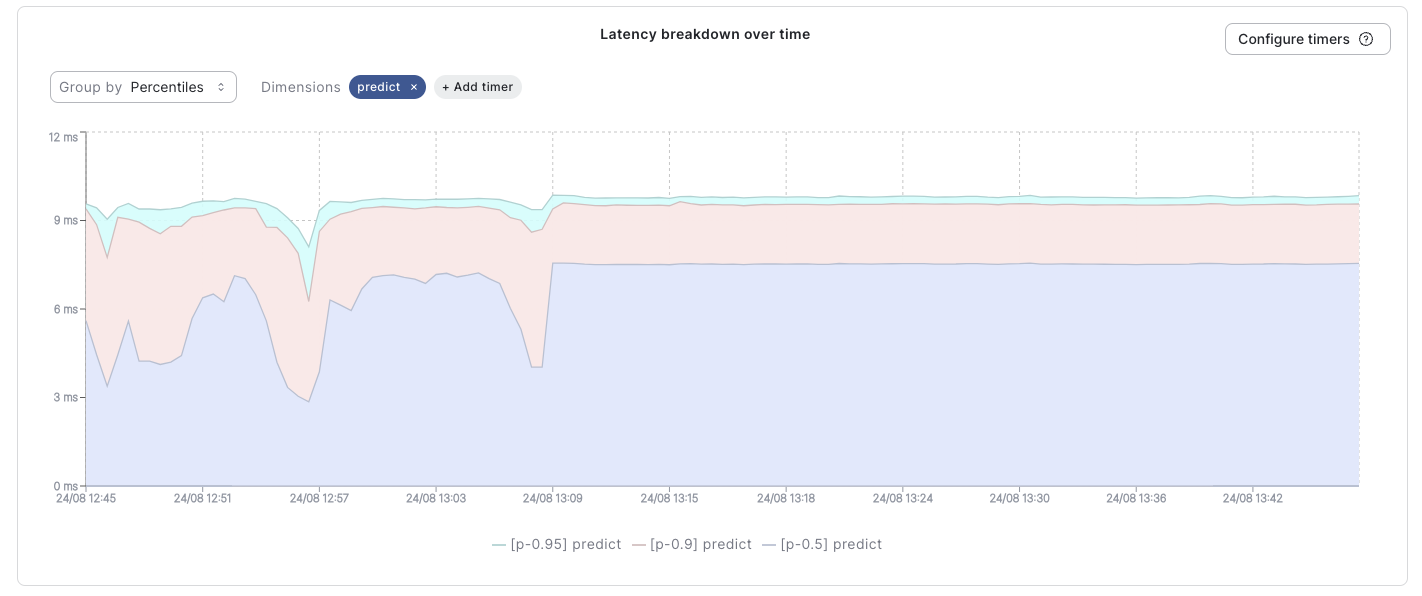Prediction Timers
Troubleshoot prediction latency, find bottlenecks and optimize performance
Qwak prediction timers help troubleshoot model prediction latency, measure prediction times, find bottlenecks, and optimize performance.
Configure multiple timers with custom names for clear visibility using either a context manager or a decorator.
After building, deploying and sending inference requests to your model, you can view these timers on the Latency breakdown graph.

See the Qwak prediction timer in the Model Overview
Note: The prediction timer graph may display up to 5 timers including the default
overallandpredicttimers. This leave room for additional 3 custom timers.
Configure timers via decorators
Qwak timers may be configured via a function decorates manager, to easily wrap different methods that are called during the prediction process.
from qwak import qwak_timer
from qwak.model.base import QwakModel
class MyModel(QwakModel):
def build():
pass
@qwak_timer("my_custom_timer_name")
def pre_process(self, df):
# Perform custom processing
return df
def predict(self, df):
self.pre_process(df)
return df
Configure timers via context managers
Qwak timers may be configured via a context manager, to easily wrap parts of your code that need measurements.
from qwak import qwak_timer
from qwak.model.base import QwakModel
class MyModel(QwakModel):
def build():
pass
def predict(self, df):
with qwak_timer("my_custom_timer_name"):
# Perform custom processing
df = df + 1
return df
Default timers
Overall timer
Measure the end to end inference time, starting at the moment a request arrived, until the inference output.
Queue timer
Measures the the time it takes requests to leave the input queue before reaching the model.
Updated 8 months ago
